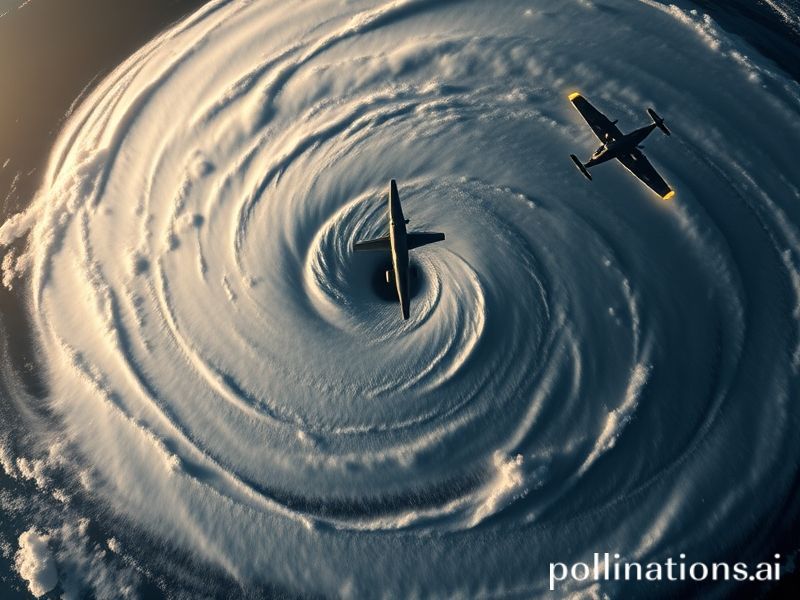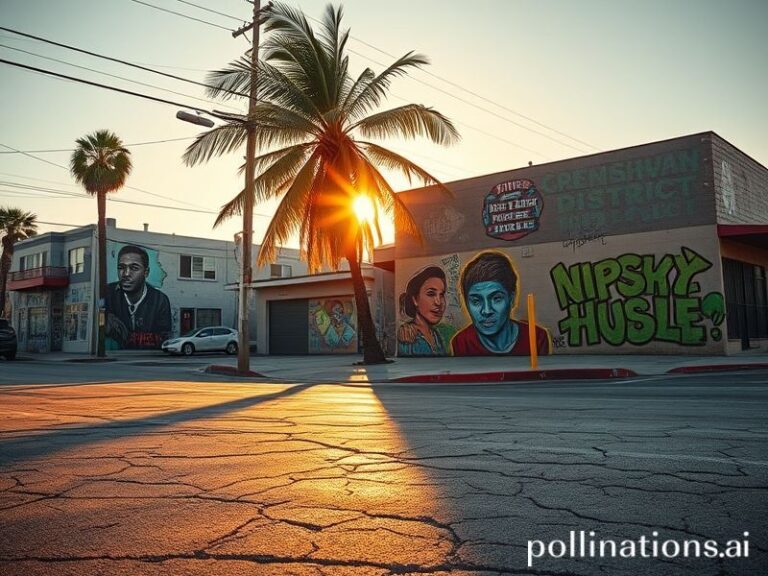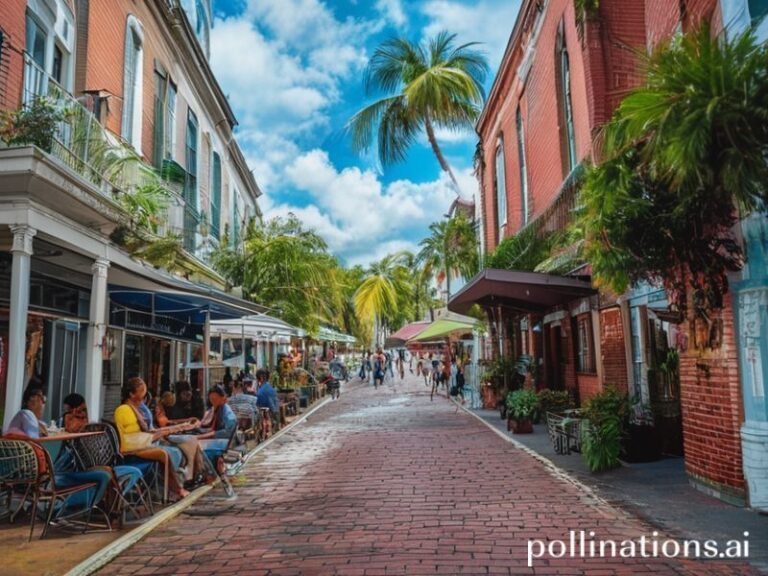Global Ripple Effects: Why an Atlantic Hurricane Season Forecast Should Worry Everyone from Oslo to Lagos
Hurricanes Without Passports: A Forecast for the World’s Favorite Punchline
By Santiago “Santi” Vargas, Senior Correspondent, Dave’s Locker
MIAMI—Every June, the Atlantic basin opens its annual box of chocolates and, true to form, half of them are filled with hot sauce and glass shards. This year the National Oceanic and Atmospheric Administration—the bureaucratic oracle we pay to break the bad news politely—predicts an “above-normal” season of 17 to 25 named storms, 8 to 13 hurricanes, and 4 to 7 major ones. In layman’s terms: buy more plywood, re-download that app you deleted last November, and if you’re a reinsurance actuary, maybe reconsider that third espresso.
Global schadenfreude usually begins here: Americans, famously convinced geography ends at their coastline, will once again discover that a Category-4 cyclone in the Gulf of Mexico is also a Category-Four-Alarm fire in the London Metal Exchange. Roughly twenty percent of the world’s refined oil and one-third of its liquefied natural gas slip through the Gulf like nervous debutantes. When a storm shutters those rigs, German commuters feel it at the pump before Floridians feel it at the liquor store. Meanwhile, the Shanghai Shipping Exchange reroutes container vessels through the Suez, where the only icebergs are bureaucratic, and the backlog in Rotterdam blooms like algae.
But let us not pretend suffering is evenly distributed. Haiti, still rebuilding from the last decade’s greatest hits, now faces the possibility of a direct strike while holding an inflation rate that could moonlight as a telephone number. Cuba, resourceful as ever, has already dispatched medics to the Dominican Republic in a gesture of pre-emptive solidarity—because nothing says “we’re in this together” like borrowing someone else’s coastline to practice triage. Across the Atlantic, Cape Verde—where many of these tempests are born—exports more seasonal depression than Carnival feathers. The irony is not lost on locals that the weather systems christened off their shores will later be live-streamed on TikTok destroying parking garages in New Jersey.
Europe, smug in its temperate self-regard, should note that ex-hurricanes occasionally limp across the ocean like drunken tourists and dump October monsoons on Galway. Last year’s Storm Agnes left Irish farmers harvesting seaweed instead of barley, a development Guinness politely calls “experimental terroir.” Meanwhile, the European Centre for Medium-Range Weather Forecasts—basically the continent’s hall monitor—warns that warmer North Atlantic waters may soon make “Medicanes” (Mediterranean hurricanes) as common as overpriced Aperol spritzes.
Asia, of course, watches the Atlantic with the detached wisdom of an older sibling who’s already survived her own monsoon season. But reinsurers in Tokyo and Singapore, ever the cool-headed bookmakers, price cat-bonds against American wind the way Vegas handicaps heavyweight bouts. When a storm named after an 18th-century Spanish nun erases half of Fort Lauderdale, the payout ripples through pension funds in Norway and university endowments in Ontario. Capitalism, unlike hurricanes, has impeccable global circulation.
And then there’s the climate question—the conversational third rail we hop over like puddles. NOAA concedes that La Niña’s exit and record-warm Atlantic surface temperatures are “contributing factors,” which is meteorologist-speak for “we’re not saying the house is on fire, but maybe don’t store the gasoline in the living room.” The upshot: storms intensify faster, dump more rain, and politely ignore the traditional seasonal boundaries. Expect late-season stragglers in November, the meteorological equivalent of that one guest who won’t leave the wedding until the DJ is unplugged.
So what is the worldly citizen to do? Europeans might start by labeling emergency rations in three languages. Africans can brace for grain price spikes when U.S. ports close. South Americans should prepare for another round of “floating refineries” idling offshore, burning bunker fuel while the insurance lawyers argue semantics. And Americans? Perhaps finally admit that a continental coastline is not a moat but a welcome mat.
In the end, the Atlantic hurricane season is the planet’s most reliable reminder that nature still drafts the itinerary and humans merely RSVP. Pack accordingly. The storms are coming, and like the worst dinner guests, they never bring wine, always overstay, and somehow leave the rest of us arguing about who forgot to lock the patio doors.







